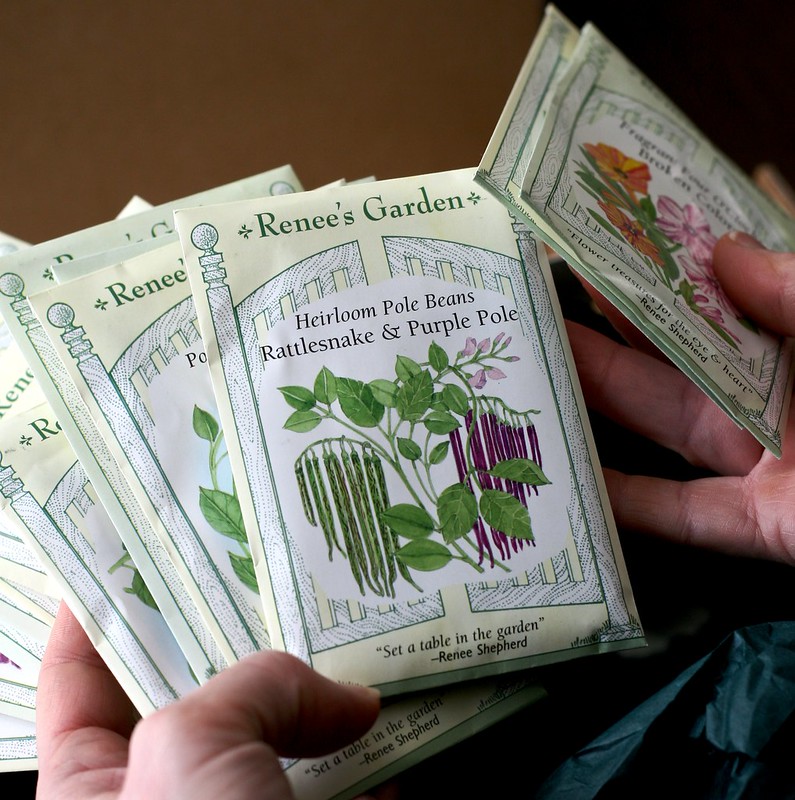
Flickr.com via Chiot’s Run
Peek into my gardening cabinet, and you’ll find a slew of gardening books, some crafting supplies, seed starting tools, my seed organizer, and a bunch of empty seed packets devoid of seed.
Why do I keep the dirty, warped, packets around? If I’m out of seed, why not throw them in the trash? Good question!
I don’t dare toss out packets unless they’re damaged beyond recognition. There are plenty of smart reasons to keep those packets close by, but the number one reason is that they contain so much information. A seed packet is an invaluable piece of reference material. Here’s what it can tell you:
- Days to maturity: This is a crucial piece of information for garden planning. While I could easily Google it, I find it easier to refer to my saved, crumpled packets. I don’t mind hauling them out to the garden or getting them dirty during the seed starting process. I’m also more confident in the seed packet info than I am in a Google search. Often, the seed packet estimate is much more accurate than anything I might find online. The best information is straight from the seed source. Another seed seller may sell seeds for a plant with an identical name but there may be small variations in time to maturity.
- Region-specific info: Some seed sellers are better equipped to note region-specific information on packets. A seed seller based in California, might not think to include information for cold-region growers, for instance. If you spot region-specific info on a packet, hold it close! I cherish those seed packets that contain info for my specific growing region.
- Harvesting tips: Harvesting information is readily available online, but again, it’s sometimes not very variety-specific.
- History: Historical information won’t necessarily help you cultivate a healthy crop, but it’s super interesting and hard to find elsewhere, especially if you’re purchasing from a specialized seller.
- Spacing guide: As a Square Foot Gardener, spacing per square is usually really simple, but some plant varieties have unique spacing requirements that I might not find listed in the SFG book or online. I’ll refer to the listed packet spacing for this info.
I also like to take notes or stick post-its to my leftover seed packets with observations and my personal experience growing a certain plant. If the packet says days to maturity is 50, but I found it to be longer, I’ll mark that on the packet. It may be my specific growing conditions that create the difference, and it’s essential to keep tabs on those small variations for when I’m planning out my planting schedule the following year. The added notes also provide me with info otherwise not on the packet. I find it easier to refer to these notes than to use a journal or other garden diary.
Old packets are also useful if you plan to save seeds. You’ll have the original info on hand, and you won’t have to worry about forgetting plant particulars.
Do you keep old seed packets? If you don’t, I hope that you’ll reconsider after reading this!

Steph Coelho is a freelance writer gardening in zone 5b. She is a certified Square Foot Gardener and has taught various garden-related workshops. When she’s not digging in the dirt or writing, she’s cooking up fresh produce, running, or listening to her favorite podcasts.
Leave a Reply